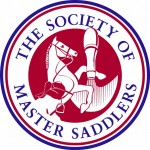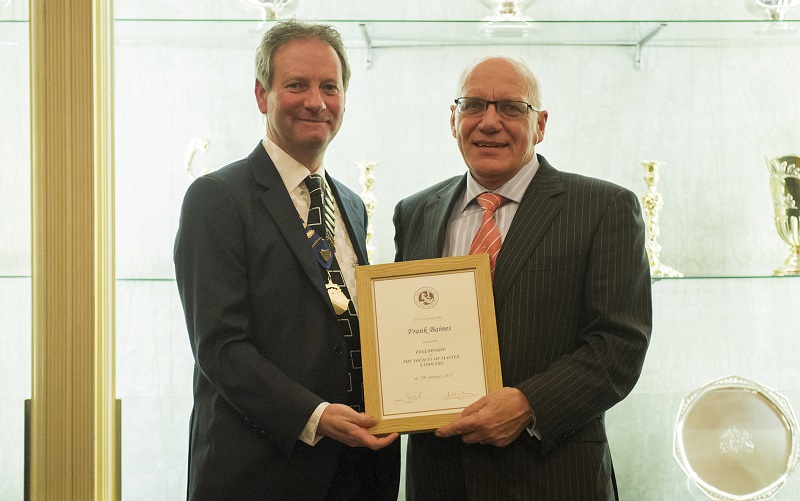Posted: 2nd February 2018 | Back to news feed

Right in the heart of England, stands a town which has been the centre of excellence for many years when it comes to saddlery manufacturing and production. British made saddlery remains at the forefront of design and diversification thanks to generations of leather craftsmen and women putting their skills to practice in the town of Wallsall.
And without doubt the quality of the products made both matches and surpasses the finest in Europe and around the world. In the workshops that are scattered around Walsall, are some of the world’s most sought after craftspeople who have honed their technique and knowledge over many years.
These skills are widely recognised by the Society of Master Saddlers when subsequently awarding them Master Saddler status. Following that period many go on to gain further experience working for Master Saddlers and businesses that over many years have perfected the art of saddle making at its highest level.
These people are the latest generation of leather workers that have descended from a tradition that can be traced back to the 16th century.
Walsall History
Tanneries were known to have been sited along the major tributaries of the River Fleam in the early 16th century, but it was not until the 18th century that there were indications that Walsall was becoming a centre for the leather trade.
Bridle cutting is believed to have been the first sector of the industry to make a significant impact. By 1813 there were six bridle-cutting firms successfully operating in Walsall as well as seven curries, which involves the dyeing and colouring of leather before it is passed on for manufacturing.
By the end of the 19th century lorinery, which comprises the manufacture of all the metal components related to horse riding, ranked alongside Walsall’s other major industries.
Up until 1850 Walsall was only supplying the needs of the local market, but with further improvement in communication Walsall began to attain a national and international reputation.
The reason for this West Midlands town becoming a centre for the leather trade can largely be explained in geographical terms.
All the raw materials required for the production of leather were within close proximity to the town.
Hides were easily obtainable due to the abundance of cattle grazed on the lush pastures of South Staffordshire and North Warwickshire. The lime needed to remove the hair from the hides was excavated from the limepits of nearby Rushall, and the oak bark, which was then used as a tanning agent, was available from Cannock Chase or the Forest of Arden.
Despite the constant development of its products, the history of the Walsall leather industry is one of continuity rather than change and prides themselves on their British traditions.
Due to the concentration of so many skilled leather workers, from generations in the trade, this has ensured that the quality which is Walsall’s watchword has been maintained.
The history behind the Walsall leather industry is not only humbling to know but it ultimately supports British manufactures, giving any buyer the confidence to know what they are getting, which is nothing short of beautifully, British handcrafted saddlery and leather goods.
Now 70-years-old Master Saddler and Fellow of the Society of Master Saddlers, Frank Baines has been at the forefront of saddlery developments in recent years and is proud of the history, heritage and skill that is behind a Walsall made saddle

Explains Frank: “Like so many of the people in Walsall making and crafting saddles I became interested in the industry due to family connections.
“My grandfather really talked me into following his footsteps and I never looked back. The time, effort and skill that the craftspeople of Walsall put into making a saddle really does need to be recognised – it is second to none.”
After some 55 years in the trade, Frank handed over his business to son, Garry and daughter, Victoria who similarly have the drive and passion to manufacture saddlery of the highest quality.
A British Made Saddle
For most horse owners and riders today the preferred choice of saddle is one that is made bespoke to both horse and rider as fit, comfort and quality are recognised as of the utmost importance when looking to purchase a new saddle.
Adds Frank: “British made saddles are the best and over the years more and more businesses whether two to three man teams or larger more high profile manufacturers have recognised the need to offer bespoke saddles that are made working alongside a Society of Masters Saddlers’ Qualified Saddle Fitter.
“Everything from the fit, leather and colour is bespoke and of individual choice so that the finished product is made to exacting standards that will benefit both the horse and rider and last for many years.
“The saddlers of today recognise the need to constantly gain new knowledge combined with their many years’ experience to continue to set them apart from the rest of the world.
“Keeping open-minded and assessing standards and training is key if the craftspeople of both Walsall and around the UK want to maintain their position as leaders in this highly competitive field.
“There are plenty of opportunities today for people wanting to enter the trade and once qualifications are gained and apprenticeships complete it is still very much possible today to set up a business to be proud of.
“Spreading the word on the quality of British made saddles, bridles and other leather goods must remain at the forefront of everyone involved in the sector and is something we will continue to promote as best we can.”
For more information visit www.mastersaddlers.co.uk or contact The Society of Master Saddlers on 01449 711642.
The Equestrian Index newsfeed is compiled from articles submitted by advertising members and expresses the opinions of those members. Watsons Directories Ltd shall not be held liable for any inaccuracies or mis-statements therein.
